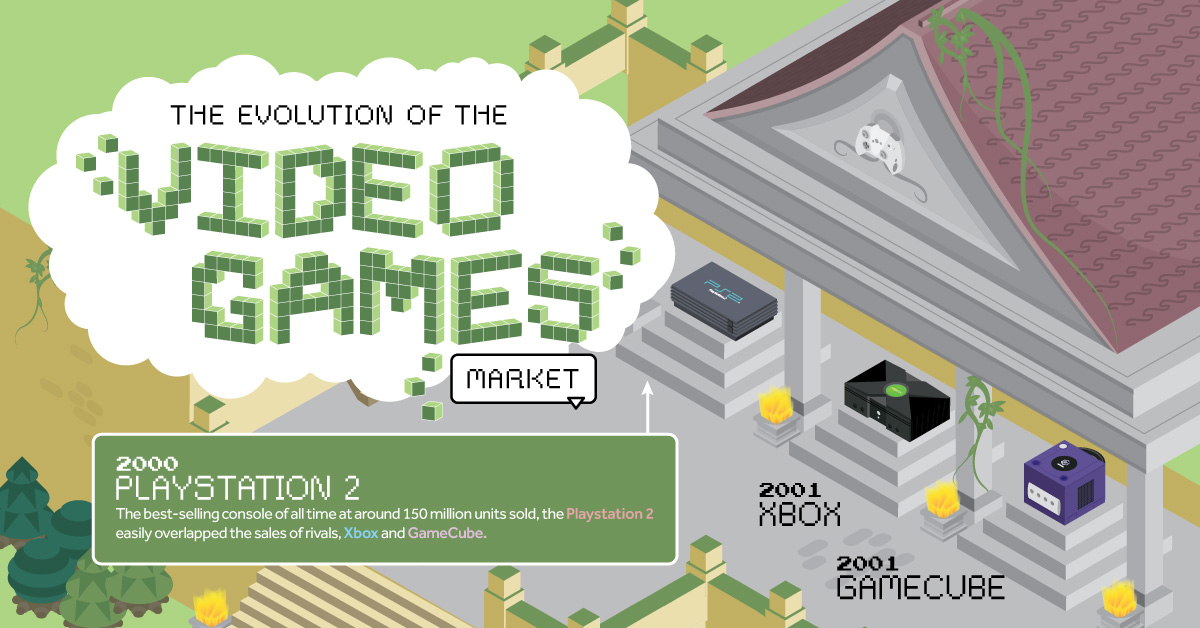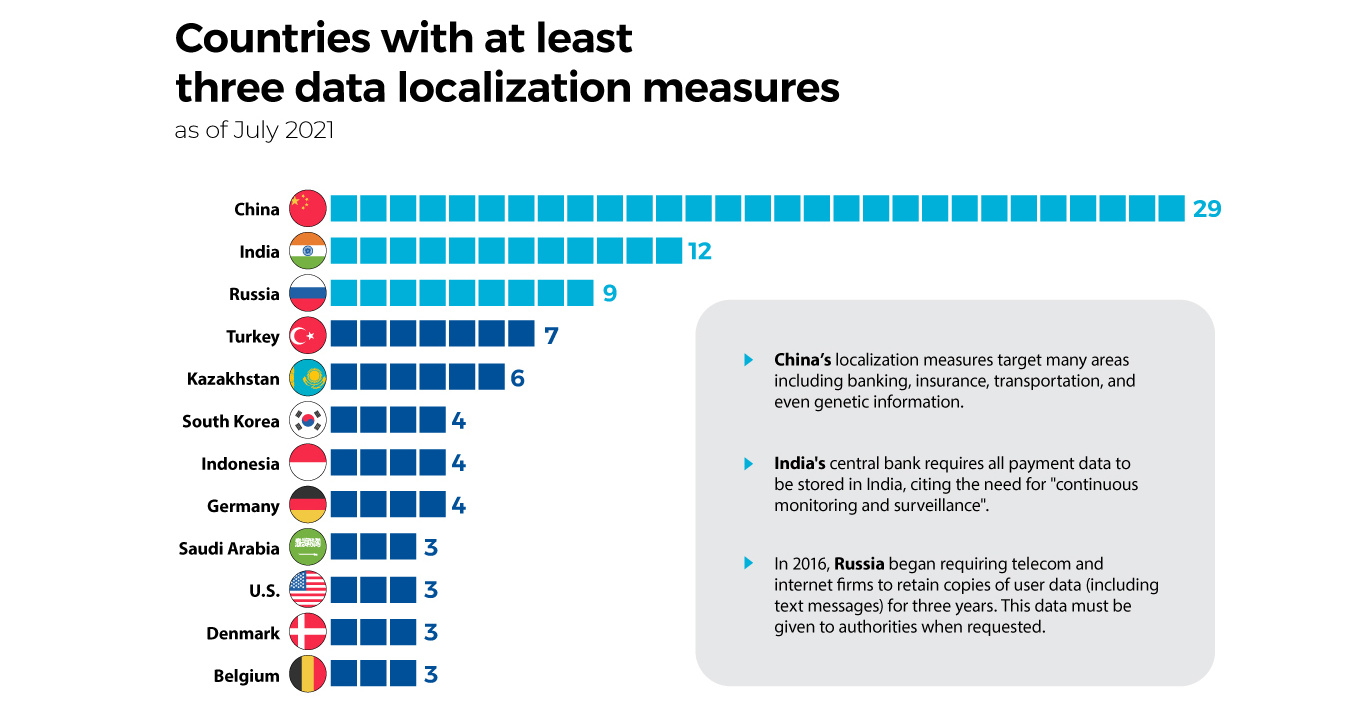Open Data: A New Power Struggle Emerges
The following content is sponsored by the Hinrich Foundation.

Why the World Needs Open Data
Over the last 10 years, data has quickly become one of the world’s most abundant resources.
It’s easy to see how, as well. Things we use on a day-to-day basis—phones, TVs, and even home appliances—are often connected to the internet and thus able to collect data. The result is 64 zettabytes (64 trillion gigabytes) of data being created in 2020.
When we are able to share and analyze this data, we can unlock value for both businesses and society. For instance, health data collected from wearable devices can help governments make better decisions during a pandemic. Location data collected from smartphones can enable businesses to reach customers more efficiently. The list goes on and on.
In this infographic from the Hinrich Foundation, we highlight the importance of open data, and why some governments are trying to control the flow of data.
Open Data Comes Under Attack
Open data is data that can be freely shared, used, and built upon without restrictions—all important criteria for facilitating global trade and e-commerce.
Unfortunately, a handful of countries see data as a tool for gaining economic and political power. This leads them to impose data localization measures which hamper the international flow of data, digital products, or internet-enabled services.
The following table lists countries that have at least three of these measures.
| Country | Number of data localization measures |
|---|---|
| 🇨🇳 China | 29 |
| 🇮🇳 India | 12 |
| 🇷🇺 Russia | 9 |
| 🇹🇷 Turkey | 7 |
| 🇰🇿 Kazakhstan | 6 |
| 🇰🇷 South Korea | 4 |
| 🇮🇩 Indonesia | 4 |
| 🇩🇪 Germany | 4 |
| 🇸🇦 Saudi Arabia | 3 |
| 🇺🇸 U.S. | 3 |
| 🇩🇰 Denmark | 3 |
| 🇧🇪 Belgium | 3 |
Source: ITIF 2021
Data localization regimes can vary in severity and affect a range of industries. China is the leader in this regard, with 29 localization measures targeting various areas of its economy. This includes banking, insurance, transportation, and even genetic information.
Common Rationales for Data Localization
There are two common rationales for why governments try to control the flow of data.
1. Data Privacy and Security
Policymakers often believe that the best way to protect data is to store it within their borders. However, past events show that the security of data does not depend on where it is stored.
Consider the U.S. Office of Personnel Management data breach, which resulted in the personal information of 25 million Americans being stolen. U.S. investigators claim the attack originated in China, and was carried out by agents who managed to gain valid user credentials.
2. Surveillance and Protectionism
Geopolitical rivalries have escalated in recent years, and businesses that generate data often find themselves in the crossfire.
One example is the U.S. blacklisting of Huawei in 2019, which left Huawei phones without access to Google apps like YouTube and Maps. This was a serious blow to the company’s competitiveness, and its sales in Q1 2021 declined 50% from the prior year. Over the same time frame, other Chinese phone makers have experienced double-digit growth.
Another example is China’s crackdown on Didi, the country’s largest ride-hailing company. Didi came under fire for going public on the New York Stock Exchange in June 2021, and was unable to register new users while it was investigated for “national security purposes”.
China’s Cybersecurity Administration is now considering a ban on overseas IPOs for tech companies.
The Future is Digital
5G networks are expected to introduce an unprecedented level of connectedness. This means more data being generated by individuals, businesses, and governments.
And while this data has the potential to unlock solutions for many global issues, policymakers continue to create more barriers. There are now 144 data localization measures worldwide, up from 67 in 2017.
Of course, not all data can be open data. But if designed properly, data governance can enable more inclusive economic growth and maximize the benefits of this modern resource.
-

 Sponsored3 years ago
Sponsored3 years agoMore Than Precious: Silver’s Role in the New Energy Era (Part 3 of 3)
Long known as a precious metal, silver in solar and EV technologies will redefine its role and importance to a greener economy.
-

 Sponsored7 years ago
Sponsored7 years agoThe History and Evolution of the Video Games Market
Everything from Pong to the rise of mobile gaming and AR/VR. Learn about the $100 billion video games market in this giant infographic.
-

 Sponsored8 years ago
Sponsored8 years agoThe Extraordinary Raw Materials in an iPhone 6s
Over 700 million iPhones have now been sold, but the iPhone would not exist if it were not for the raw materials that make the technology...
-

 Sponsored8 years ago
Sponsored8 years agoThe Industrial Internet, and How It’s Revolutionizing Mining
The convergence of the global industrial sector with big data and the internet of things, or the Industrial Internet, will revolutionize how mining works.

